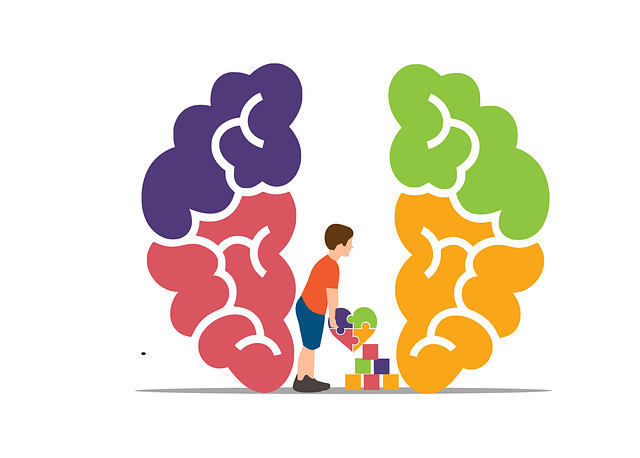Burnout among healthcare providers is a growing concern impacting both individual well-being and patient care quality. Early recognition of burnout symptoms, such as exhaustion, cynicism, decreased productivity, and absenteeism, is crucial for intervention. Longmont Alcohol Abuse Therapy (LAAT) emphasizes emotional well-being promotion techniques, including setting work-life boundaries, self-care practices, peer support, and stress reduction methods tailored to individual preferences. LAAT's comprehensive programs, like stress management training, resilience workshops, and peer support networks, have achieved significant positive outcomes in mitigating burnout, enhancing service quality, and increasing patient satisfaction, ultimately fostering a more sustainable healthcare system.
Healthcare provider burnout is a growing concern, impacting patient care and well-being. This article explores strategies to prevent burnout among healthcare workers, focusing on effective interventions like Longmont Alcohol Abuse Therapy, which serves as a case study highlighting successful burnout reduction tactics. We’ll discuss how recognizing early signs of burnout and implementing comprehensive prevention plans are vital for maintaining a healthy workforce. Learn about actionable steps to create resilient work environments.
- Recognizing Burnout Among Healthcare Providers
- Implementing Effective Burnout Prevention Strategies
- Longmont Alcohol Abuse Therapy: A Case Study in Burnout Intervention
Recognizing Burnout Among Healthcare Providers

Burnout among healthcare providers is a growing concern, impacting both individual well-being and patient care quality. Recognizing burnout early is crucial for effective intervention and prevention. Symptoms can manifest in various ways, from physical exhaustion and cynicism towards patients to decreased productivity and increased absenteeism. Healthcare professionals often juggle demanding work schedules, high-stress environments, and complex patient needs, which can lead to emotional exhaustion over time.
Longmont Alcohol Abuse Therapy highlights the interconnectedness of burnout and emotional well-being promotion techniques. Strategies for burnout prevention include setting clear boundaries between work and personal life, engaging in regular self-care practices such as exercise and mindfulness, and accessing support from peers or professional counselors. Implementing stress reduction methods tailored to individual preferences can also be beneficial. By prioritizing burnout prevention, healthcare organizations can foster a more sustainable and resilient workforce.
Implementing Effective Burnout Prevention Strategies

Implementing effective burnout prevention strategies is paramount in healthcare to ensure professionals can provide optimal care without succumbing to stress and exhaustion. Longmont Alcohol Abuse Therapy, as a specialized service, can play a crucial role in promoting mental health awareness among healthcare providers. By integrating evidence-based practices, such as cognitive-behavioral therapy techniques, therapists can assist medical staff in managing stress, improving coping mechanisms, and enhancing resilience. These strategies not only benefit individual practitioners but also positively impact patient outcomes.
Moreover, fostering a supportive work environment through empathy building strategies and mental health policy analysis and advocacy is essential. Healthcare organizations should prioritize open communication channels, encourage regular breaks, and offer accessible resources for stress management. Such initiatives create a culture where professionals feel valued, understood, and equipped to handle the demands of their roles, ultimately preventing burnout and fostering a healthier work-life balance.
Longmont Alcohol Abuse Therapy: A Case Study in Burnout Intervention

Longmont Alcohol Abuse Therapy (LAAT) serves as a compelling case study in burnout intervention among healthcare providers. By focusing on both individual and collective well-being, LAAT has successfully pioneered strategies that cater to mental health professionals’ unique challenges. Through comprehensive programs that include ongoing training in stress management and resilience-building, along with peer support networks, the center has demonstrated significant positive outcomes. These initiatives not only mitigate burnout but also enhance service quality and patient satisfaction.
Incorporating public awareness campaigns and risk assessment tools as part of their approach, LAAT has raised critical consciousness about mental health issues within the community. Additionally, they promote self-care practices that encourage healthcare providers to prioritize their own mental and physical health. This holistic strategy not only benefits the professionals themselves but also ensures a more sustainable and effective healthcare system.
Healthcare provider burnout is a pressing issue, but with the right strategies, it can be effectively addressed. By recognizing burnout signs early and implementing prevention tactics such as those seen in the successful Longmont Alcohol Abuse Therapy case study, healthcare organizations can create supportive environments that promote well-being and resilience. These strategies not only benefit individual providers but also enhance patient care and organizational success in the long term.














